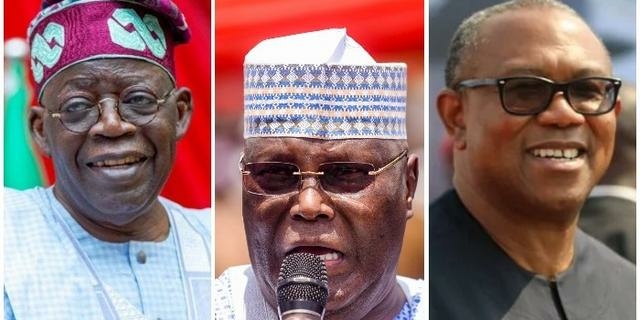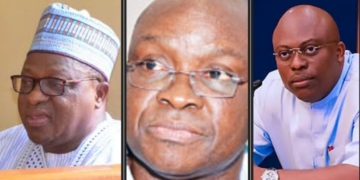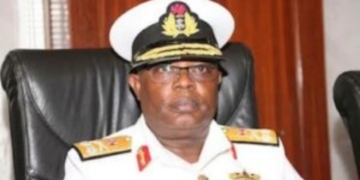Nigeria elections have their peculiarities, and the complex nature of the election will have candidates touring through each state and region seeking votes and support to a reasonable degree.
Following the directive of the Independent National Electoral Commission (INEC) the political campaign for the Nation’s top seat commenced on the 28th of September, with 18 presidential candidates going head to head to persuade Nigerians to vote for them.
The presidential candidates are Accord Party (AP), Imumolen Christopher; Action Alliance (AA), Al Mustapha Hamza; African Action Congress (AAC), Omoyele Sowore; African Democratic Congress (ADC), Kachikwu Dumebi; Action Democratic Party (ADP), Sani Yabagi; All Progressives Congress (APC), Bola Tinubu.
Also on the ballot are All Progressives Grand Alliance (APGA), Umeadi Chukwudi; Allied Peoples Movement (APM), Ojei Princess Chichi; Action Peoples Party (APP), Nnadi Osita; Boot Party (BP), Adenuga Oluwafemi; Labour Party (LP), Peter Obi; New Nigeria Peoples Party (NNPP), Rabiu Kwankwaso; National Rescue Movement (NRM), Osakwe Johnson; Peoples Democratic Party (PDP), Atiku Abubakar; Peoples Redemption Party (PRP), Abiola Kolawole; Social Democratic Party (SDP), Adebayo Adewole; Young Peoples Party (YPP), Ado-Ibrahim Abdulmalik; and Zenith Labour Party (ZLP), Dan Nwanyanwu.
However, emerging victorious at the poll doesn’t give you an automatic ticket to being the President.
The Independent National Electoral Commission (INEC) has restated that the winner of the presidential election must score the highest votes and the required 25 percent in two-thirds spread in the 36 states of the federation. It said where a clear winner did not emerge, there would be a second election between the person with the highest votes and the person with the spread, but not necessarily the second-highest votes scored.
For more emphasis, WITHIN NIGERIA, spoke to Qudus Alalafia, Head of Chambers, Clemesis Associates, who disclosed the provisions of the law. He said that a presidential candidate must score not less than 25 percent of the votes cast at the election in at least 24 states (including Federal Capital Territory) of the Federation.
” Specifically, section 134 of the Nigeria Constitution (as amended) states: (1) A candidate for an election to the office of President shall be deemed to have to be been duly elected, where, there being only two candidates for the election – (a) he has the majority of votes cast at the election; and; (b) he has not less than one-quarter of the votes cast at the election in each of at least two-thirds of all the States in the Federation and the Federal Capital Territory, Abuja.
“(2) A candidate for an election to the office of President shall be deemed to have been duly elected where there being more than two candidates for the election- (a) he has the highest number of votes cast at the election;
and (b) he has not less than one-quarter of the votes cast at the election of at least two-thirds of all the States in the Federation and the Federal Capital Territory, Abuja.
“The simple arithmetic explanation to the above provision of the law is that a presidential candidate must score not less than 25 percent of the votes cast at the election in at least 24 states (including Federal Capital Territory) of the Federation.” Alalafia said.
He noted that the criterion is to have a minimum number of 25 percent votes cast in at least 24 states of the Federation covering the FCT.
“Therefore, it is not the law nor the intention of the draftsman that a separate minimum number of 25 percent votes cast must be recorded at the FCT by a candidate to the office of the President before such a candidate can be declared a winner.
“This is so in view of section 132 (4) of the Constitution which provides that; for the purpose of an election to the office of President, the whole of the Federation shall be regarded as one constituency. And in this case, the Federation includes the Federal Capital Territory.” he said.





Discussion about this post